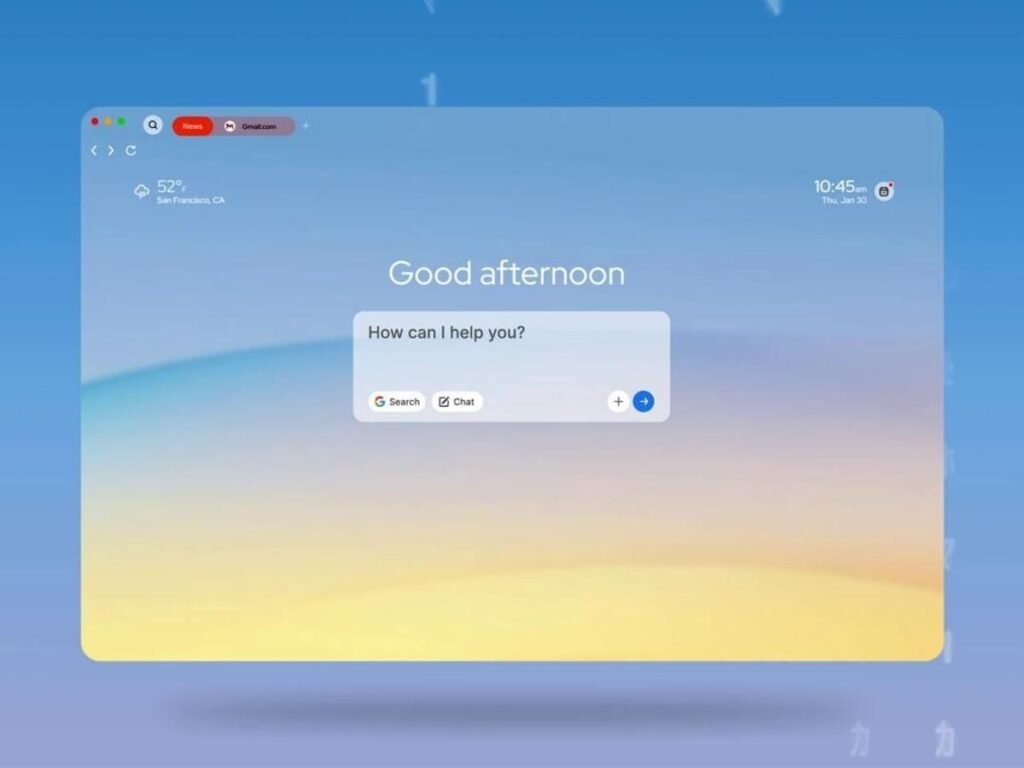
Norton, best known for its antivirus software like Norton 360 Deluxe, is taking a bold step into a new arena with the announcement of Neo, a browser that puts AI at the heart of the web experience. Unlike traditional browsers where the URL bar is used for typing in addresses or search queries, Neo adds a third capability: it serves as an AI prompt box. Now available via waitlist, Norton Neo is being positioned as an “AI-first browser,” blending AI features with conventional browsing tools and promising a smarter, cleaner, and more intuitive way to interact with the web.
At the core of the experience is what Norton calls the “Magic Box,” a redesigned address bar where users can search, generate content, and trigger actions. The company says users will be able to perform tasks like generating emails or summaries directly within this input bar. While details remain unclear regarding which AI model powers the experience—whether it’s a proprietary model, a partnership, or a cloud-based or local solution—Norton emphasizes that users can preview search results via AI summaries. This appears to be more like a refined summary of search links than the generative results seen in Google’s Search Generative Experience (SGE).
Beyond the Magic Box, Neo introduces what Norton calls “tables browsing”—a way to escape the disorder of tab overload. Rather than eliminating tabs, Neo uses AI to auto-group them into categories or contexts. This approach is similar to features found in browsers like Opera One’s Tab Islands or Microsoft Edge’s Tab Groups, but with Norton suggesting a smarter, more automatic system. Whether this proves to be genuinely transformative or just a new UI layer remains to be seen.
Privacy and data collection—a major concern in any AI-powered product—gets attention too. Norton includes a native ad blocker, claims to block intrusive ads and trackers by default, and makes a point of stating that your browsing data won’t be used to train AI. It does admit to using “minimal, anonymized data,” but asserts it won’t be sold. These promises echo the privacy-first marketing of other niche browsers like Brave and Vivaldi, both of which have carved out loyal user bases with strong anti-tracking policies.
Norton hasn’t officially confirmed whether Neo is Chromium-based, but the browser does support Chrome extensions—a strong hint that it’s built on Chromium, the open-source foundation that powers both Google Chrome and Microsoft Edge.
While Norton’s other browser, Norton Private Browser, already exists, it lacks the AI integration that Neo aims to deliver. And while Neo is currently free to download for early testers with an invitation code, Norton leaves the door open for future monetization. According to its FAQ, optional premium features may be introduced down the line, though the company says the “core experience” will always remain accessible.
In a market dominated by Chrome and Edge, Neo joins a small but growing collection of alternative browsers promising to offer something extra. Whether its AI-first interface is truly groundbreaking or merely experimental, it’s clear that Norton wants to reimagine what a web browser can do—and it’s betting that AI is the future of that experience.




